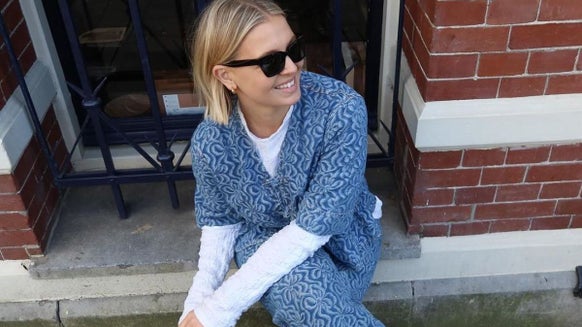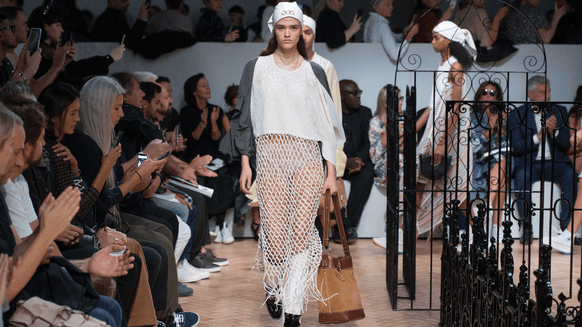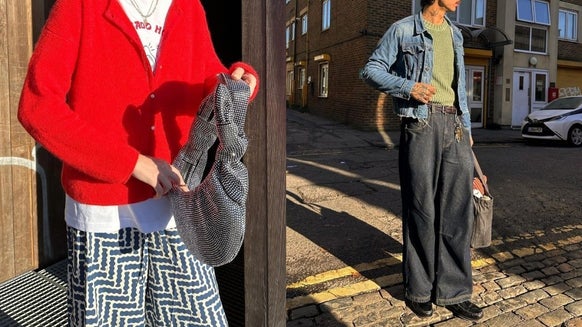Sustainability is moving further and further up our fashion priority list as each season passes. With designers shouting about the importance of ethical fashion and highlighting their efforts made to lower the impact of manufacturing on the planet. The prevalence of the fast fashion industry on the millennial generation has made modern day fashion decisions limitless, with the convenience of a new pair of shoes, handbag or jacket delivered to your front door with a click. This however, has consequently contributed to the shocking reality that of the 53 million tonnes of clothes produced globally each year, 87% actually ends its life in a landfill*#1 What is ethical fashion?
One designer leading the way on the topic of ethical fashion is Vivienne Westwood, whose AW19 show was an amalgamation of new season fashion and political activism, calling on all to buy less and buy better. Utilising her show to broadcast to the world, Vivienne enlisted the help of special guest and Chief Executive of Greenpeace, John Sauven who spoke of how the fashion industry needs to make better choices in order to save the planet.
#2 How is our shopping behaviour changing?
When looking into google searches surrounding the topic of sustainability in fashion it is clear that we have quite the appetite for change, with Lyst reporting that in 2018 there was a reported 47% increase in shoppers looking for items that have ethical and style credentials with terms such as “vegan leather” and “organic cotton”. Further to this we've started to see brands with a passion for sustainability ranking highly in the most 'searched for' categories. French footwear newbie Veja take the top spot for Instagram brands when comparing spikes in search and mentions on Instagram. However with the ever rise of the influencer whose role is to convert their following into fashion sales, some may argue that the industry is being counter-intuitive?#3 How to buy less and buy better
There are plenty of ways to implement this into your shopping habits, from creating a capsule collection full of timeless key pieces, to swapping your haul shop at fast fashion retailers and buying quality items designed to last. When making your purchasing decisions take a look at the items composition, will it last for a few years or will it be in the charity bag after a few months? Sticking to staple items like the perfect pair of blue denim jeans, a crisp white shirt or a classic trench coat can also help when over spending becomes tempting.
Alternatives
We can however see a big contribution from designers, fashion bodies, journalists and influencers to minimise the impact that fashion has on the planet. From using organic materials to hosting internationally recognised events like the Ethical Fashion Show in Berlin, British Fashion Council's Sustainable Fashion Show and the annual Copenhagen Fashion Summitwhere leaders discuss everything from manufacturing to consumption. Brands are launching collections made from sustainable materials, sourcing fair trade partners and inputting other initiatives to reduce waste, carbon emissions and overall affect on the planet. We're finding that journalists and influencers are writing about the topic of ethical fashion more as well as the purchasing decisions they are making, like this from Anne Marie Curtis - Ex Elle Editor in Chief
“This past year that I have been shopping less — not spending less, mind you, but being more careful about what I buy.”











